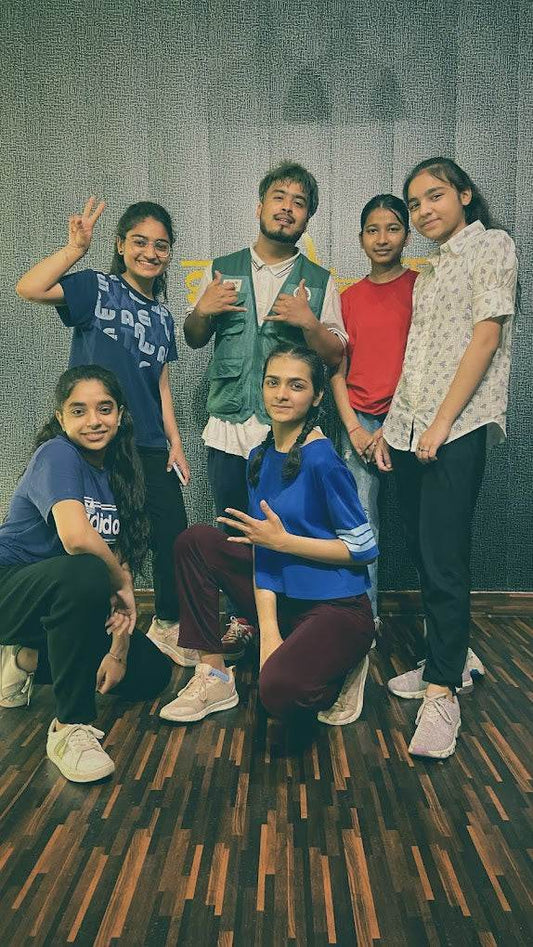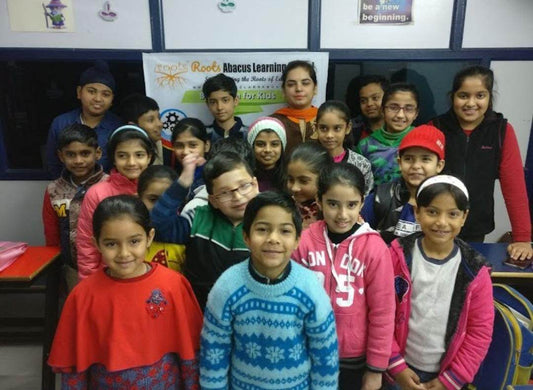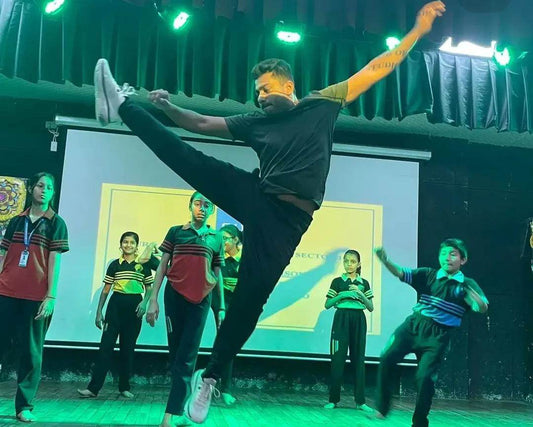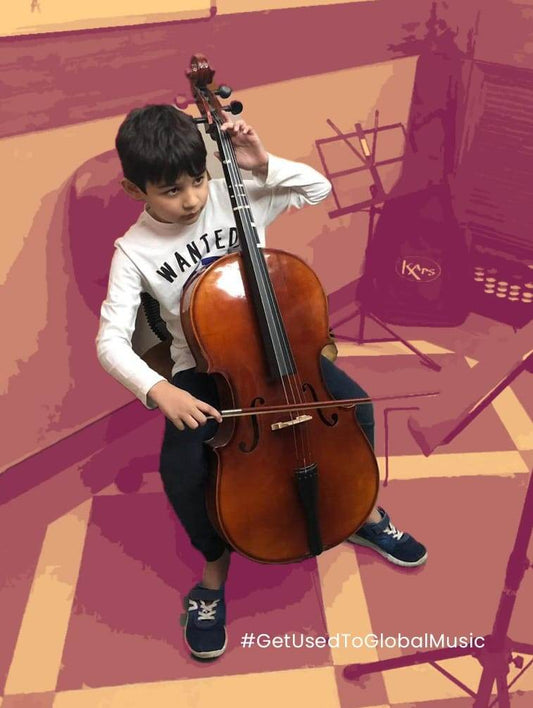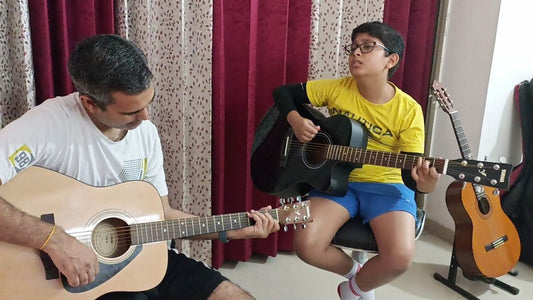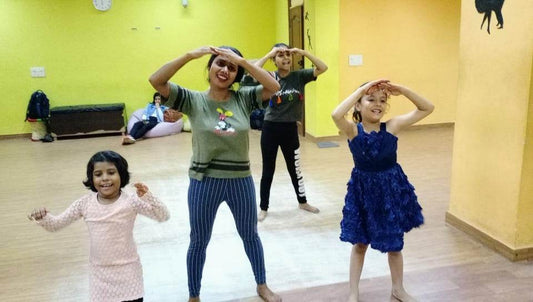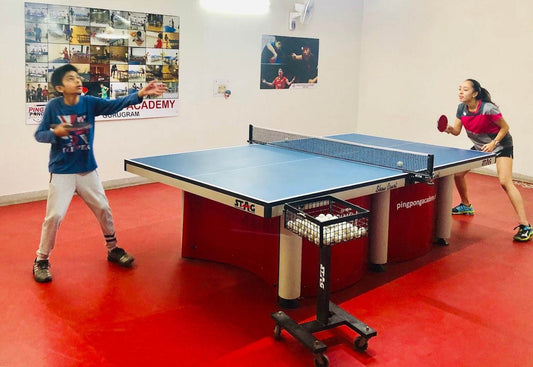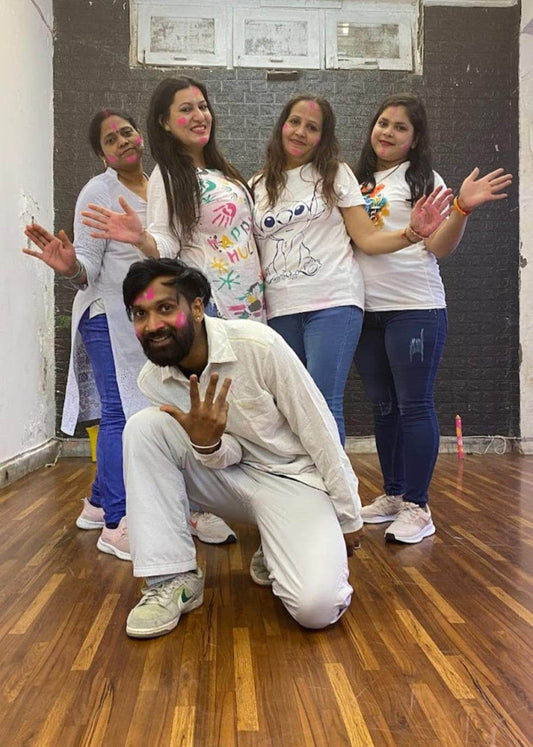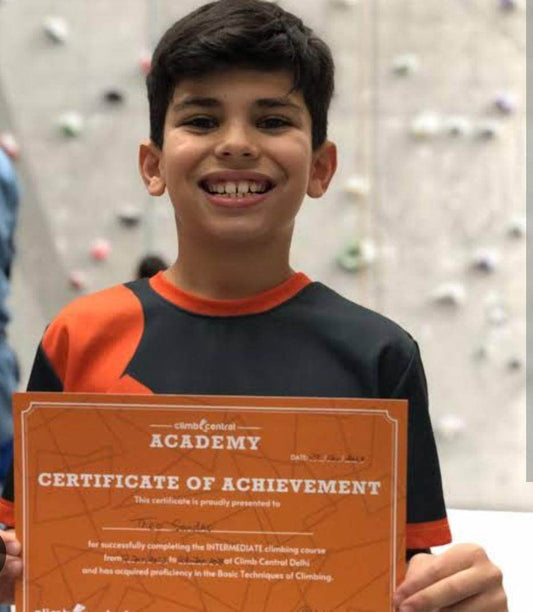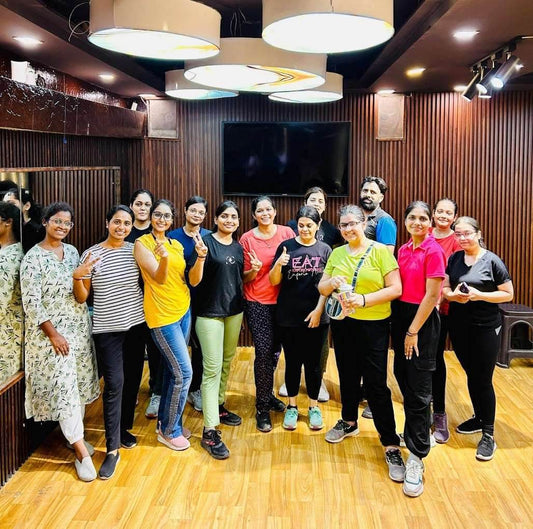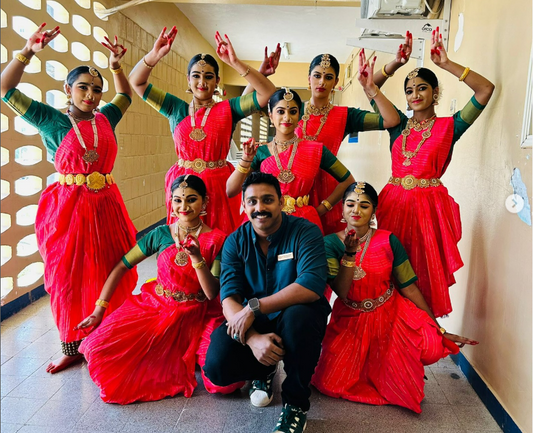-
The Platform Academy for Bollywood Western Classical Dance Training | Sector 28 Gurgaon
Regular price ₹2,000Sale price ₹2,000 Regular priceUnit price per -
Soul in Taal Academy for Freestyle Bollywood Hip-Hop Dance Classes | Sector 11 Gurgaon
Regular price ₹1,500Sale price ₹1,500 Regular priceUnit price per -
Tansen Academy of Music for Vocals Harmonium Sitar Tabla | Sector 88 Gurgaon
Regular price ₹4,000Sale price ₹4,000 Regular priceUnit price per -
Art with Children for Painting Sketching Classes | Unicosmos Road Sector 55 Gurugram
Regular price ₹2,000Sale price ₹2,000 Regular priceUnit price per -
Roots Abacus Learning School | Uppal Southend Sector 49 Gurgaon
Regular price ₹2,000Sale price ₹2,000 Regular priceUnit price per -
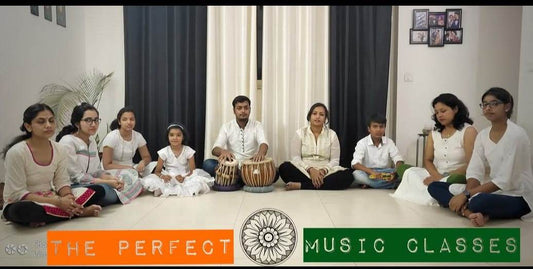
The Perfect Music Classes for Tabla Harmonimum and Indian Classical Music | Sector 83 Gurgaon
Regular price ₹3,500Sale price ₹3,500 Regular priceUnit price per -
Samdanza Dance Studio for Hip-Hop Zumba Bollywood Classes | Sector 5 Gurgaon
Regular price ₹1,200Sale price ₹1,200 Regular priceUnit price per -

Rhythmic Studio for Kathak Harmonium Vocals Bharatnatyam Classes | Near Sapphire 83 Mall Gurgaon
Regular price ₹3,200Sale price ₹3,200 Regular priceUnit price per -
DVC Dance and Fitness Studio for Bollywood Hip-Hop Classes | Sector 40 Gurgaon
Regular price ₹1,800Sale price ₹1,800 Regular priceUnit price per -
Sargam Music Academy for Classical and Semi-Classical Classes | Sector 37 Gurgaon
Regular price ₹1,500Sale price ₹1,500 Regular priceUnit price per -
Academy Of Integral Music & Research for Flute Piano Cello Classes | Sector 53 Gurgaom
Regular price ₹3,200Sale price ₹3,200 Regular priceUnit price per -
Taglioni School of Performing Arts for Jazz Ballet | Sector 57 Gurgaon
Regular price ₹3,776Sale price ₹3,776 Regular priceUnit price per -
Sonorous Six Guitar Classes | Sector 17A Gurgaon
Regular price ₹4,000Sale price ₹4,000 Regular priceUnit price per -
Yashankit Guitar Classes | White Apartments Sector 69 Gurgaon
Regular price ₹4,800Sale price ₹4,800 Regular priceUnit price per -
Dance Euphoria Academy for Bollywood Hip-Hop Classes | Sector 49 Gurgaon
Regular price ₹1,500Sale price ₹1,500 Regular priceUnit price per₹3,000Deal -
Swar Sudha Music Classes for Classical Vocals Harmonium Keyboard | Sector 56 Gurgaon
Regular price ₹2,500Sale price ₹2,500 Regular priceUnit price per -
Ping Pong Academy for Table Tennis Coaching | Sector 15 Gurgaon
Regular price ₹12,000Sale price ₹12,000 Regular priceUnit price per -
Music and Dance Palazzo for Dance and Piano Classes | Sector 57 Gurgaon
Regular price ₹3,500Sale price ₹3,500 Regular priceUnit price per -

Easy Guitar Classes | Sector 22 Gurgaon
Regular price ₹4,000Sale price ₹4,000 Regular priceUnit price per -
High Performance Tennis Academy (HPTA) | Sector 18 Gurgaon
Regular price ₹3,000Sale price ₹3,000 Regular priceUnit price per -
Musyko Acting Academy for Drama Theatre Classes | Malibu Town Sector 47 Gurgaon
Regular price From ₹2,000Sale price From ₹2,000 Regular priceUnit price per -

Gurgaon Skating Classes | Sector 53 Gurgaon
Regular price From ₹3,000Sale price From ₹3,000 Regular priceUnit price per -
Dance Temptation Fitness Studio for Bollywood Western Dance Classes | Sector 10 Gurgaon
Regular price ₹1,800Sale price ₹1,800 Regular priceUnit price per₹2,000Deal -
Beat the Music School for Western Vocals | Sushant Lok Phase 1 Gurgaon
Regular price From ₹3,500Sale price From ₹3,500 Regular priceUnit price per -
Chitrashala by Nisha Singhal Art & Craft Classes | Ashok Vihar Gurgaon
Regular price ₹1,400Sale price ₹1,400 Regular priceUnit price per -
MJ Masterclasses for Western Music Vocals Guitar | Sector 56 Gurgoan
Regular price From ₹4,000Sale price From ₹4,000 Regular priceUnit price per -
Jaya Art & Craft for Clay Craft Paper Craft DIY Classes | Sector 12 Gurgaon
Regular price ₹799Sale price ₹799 Regular priceUnit price per -
Music Soul Academy for Guitar Ukulele Piano Vocals | DLF Phase 5 Gurgaon
Regular price From ₹2,500Sale price From ₹2,500 Regular priceUnit price per -
Climb Central Academy of Indoor Rock Climbing | Mehrauli-Gurgaon Road New Delhi
Regular price From ₹7,000Sale price From ₹7,000 Regular priceUnit price per -
Alive Dance Studio for Bollywood Hip-Hop | DLF Phase 3 Sector 24 Gurgaon
Regular price ₹9,000Sale price ₹9,000 Regular priceUnit price per -
RDA Dance Academy for Bollywood Freestyle Folk Dance | Manesar Gurgaon
Regular price ₹1,000Sale price ₹1,000 Regular priceUnit price per -
The Street Dance Studio for Bollywood Zumba Hip-Hop Classes at Samalka Delhi
Regular price ₹2,500Sale price ₹2,500 Regular priceUnit price per -
Adonai Fine Arts Academy for Art & Craft Classes | Palam Vihar Gurgaon
Regular price ₹3,000Sale price ₹3,000 Regular priceUnit price per -
Aavaaz School Of Music for Vocal & Instrumental Classes | Palam Vihar Gurgaon
Regular price From ₹2,000Sale price From ₹2,000 Regular priceUnit price per -
Rachana Yadav Kathak Studio for Adults and Kids | Sector 24 Gurgaon
Regular price From ₹3,500Sale price From ₹3,500 Regular priceUnit price per -
Sundaram Dance School for Classical Dance | Sector 50 Gurgaon
Regular price ₹3,000Sale price ₹3,000 Regular priceUnit price per
About Hobby Classes in Gurugram
In today’s fast-paced world, it's essential to explore and nurture interests outside of academics. Extra-curricular activities, often referred to as hobbies, play a crucial role in personal growth, skill development, and building a well-rounded personality. Whether you're looking to pick up a new hobby, enhance existing skills, or engage in creative expression, our collection of extra-curricular classes and activities offers something for everyone.
At our platform, we provide a wide range of classes and activities designed to ignite your passion, boost your confidence, and encourage lifelong learning. These activities extend beyond the typical school curriculum and offer opportunities to develop new talents, engage with like-minded individuals, and have fun while learning.
Why Extra-curricular Activities Matter
Extra-curricular activities provide numerous benefits, extending beyond just the enjoyment of a hobby. Engaging in activities like sports, music, art, dance, or drama enhances various aspects of life, including mental and physical health, creativity, and social connections. Here’s why they’re so important:
-
Personal Development: Engaging in extra-curricular activities fosters personal growth. It helps you discover new interests and talents, building confidence and self-esteem. It also instills discipline, time management skills, and perseverance.
-
Skill Building: Many extra-curricular activities focus on developing valuable skills that are transferable to other areas of life. These could range from leadership skills in sports teams, creative problem-solving in arts, or public speaking and communication in drama or debate clubs.
-
Physical Fitness and Well-being: Activities such as sports, yoga, or dance promote physical health. They improve coordination, endurance, flexibility, and overall fitness, while also reducing stress and boosting mental well-being.
-
Social Connections: Participating in group-based hobbies allows you to meet like-minded individuals, create friendships, and work as a team. Whether you’re involved in a team sport, a group art class, or a music band, these activities are an excellent way to build social networks and develop teamwork skills.
-
Stress Relief and Relaxation: Many hobbies provide a creative or physical outlet for relaxation and stress relief. Whether it’s through painting, gardening, knitting, or playing an instrument, hobbies can help individuals unwind, focus, and disconnect from daily pressures.
-
Holistic Education: Extra-curricular activities complement academic learning by broadening your perspective. They provide balance, making learning more enjoyable and allowing you to explore different facets of creativity and intellect.
Types of Extra-curricular Classes and Activities
Our collection encompasses a broad spectrum of extra-curricular activities to cater to diverse interests. Whether you're a child, a teenager, or an adult, you'll find opportunities to explore and develop skills in the following areas:
1. Arts and Crafts
- Painting and Drawing: Unlock your creativity and learn the art of painting, sketching, and drawing. Whether it’s watercolor, acrylics, or oil painting, discover the world of colors, textures, and artistic expression.
- Pottery and Sculpting: Dive into the world of clay, learning techniques to mold, shape, and create pottery or sculptures. From hand-building techniques to the use of a pottery wheel, pottery classes offer a therapeutic and creative outlet.
- Crafting: Learn DIY crafts such as origami, knitting, embroidery, scrapbooking, or upcycling. Crafting activities are a great way to relax, create, and personalize your belongings.
2. Performing Arts
- Music and Instruments: Whether you want to master an instrument such as the piano, guitar, or violin, or learn the basics of music theory, our music classes cater to all skill levels. Discover your musical potential, learn to read sheet music, and perform with confidence.
- Dance: From classical forms like ballet and Kathak to modern styles such as hip-hop, jazz, or contemporary, our dance classes offer a great way to express yourself through movement. You’ll learn the techniques, choreography, and performance skills required for each dance style.
- Drama and Theatre: Drama classes give you the opportunity to explore acting, stagecraft, and storytelling. Whether you're a beginner or an experienced performer, these activities help build public speaking, confidence, and creativity.
3. Sports and Fitness
- Team Sports: Team sports such as football, cricket, basketball, or volleyball teach discipline, teamwork, and leadership. These activities also help in improving physical health, endurance, and coordination.
- Individual Sports: Sports like tennis, swimming, badminton, or athletics provide the opportunity to work on personal performance, endurance, and focus.
- Fitness and Yoga: Fitness classes such as Zumba, aerobics, or Pilates offer fun, dynamic workouts, while yoga helps improve flexibility, strength, and mental clarity. Yoga is particularly effective in stress reduction and promoting a sense of mindfulness.
4. Technology and Coding
- Robotics and Automation: Robotics classes teach students how to design and build robots, providing hands-on experience with technology and innovation.
- Coding and Programming: Learn computer programming languages like Python, JavaScript, or C++ and develop software, apps, and websites. These classes are ideal for students interested in pursuing a career in technology or for those who want to hone their problem-solving skills.
- Web Design and Graphic Design: Learn the fundamentals of web design, UX/UI principles, or graphic design using tools like Adobe Photoshop or Illustrator. These classes are a gateway to entering the creative tech industry.
5. Language and Communication Skills
- Public Speaking and Debate: Enhance your public speaking and debate skills through structured lessons that focus on argument construction, persuasive techniques, and effective presentation. These activities help build confidence and communication skills.
- Foreign Language Classes: Learning a new language opens doors to new cultures and experiences. Whether it’s French, Spanish, German, or Mandarin, these language classes provide you with the tools to communicate effectively in a globalized world.
6. Culinary Arts
- Cooking and Baking: Unleash your inner chef by learning the fundamentals of cooking or baking. From basic cooking techniques to preparing gourmet meals, these classes are perfect for anyone interested in food preparation.
- Cake Decorating: Cake decorating is an art that combines creativity and culinary skills. Learn how to create beautifully decorated cakes, cupcakes, and other desserts using different icing techniques, fondant work, and edible decorations.
7. Gardening and Nature Activities
- Gardening: Gardening classes teach you how to grow and maintain plants, from flowers to herbs and vegetables. Gardening is an enjoyable and productive hobby that connects you to nature and provides a sense of accomplishment.
- Nature Walks and Photography: Combine your love for nature and photography by participating in outdoor walks and learning how to capture the beauty of the environment with your camera. Photography classes focus on both technical and artistic aspects of the craft.
Choosing the Right Hobby Classes for You
When it comes to selecting an extra-curricular activity, it's essential to align your choice with your interests and goals. Here are some tips to guide you in making the right choice:
-
Identify Your Interests: Consider what activities you already enjoy or have always wanted to try. Whether it's a specific sport, an artistic expression, or a creative outlet, choosing something you’re passionate about ensures long-term commitment and enjoyment.
-
Evaluate Skill Levels: Classes are available for different skill levels, whether you're a beginner or someone with advanced knowledge. Start with beginner classes if you're new to the activity, and gradually progress as you develop your skills.
-
Consider Time Commitment: Some hobbies require more time and dedication than others. Choose an activity that fits well with your schedule, whether it’s something you can pursue casually or something that demands a more structured commitment.
-
Social Engagement: Extra-curricular activities often offer the opportunity to meet like-minded people. If socializing and networking are important to you, look for group classes or team-based activities.
-
Personal Growth and Well-being: Choose hobbies that contribute to your mental, emotional, and physical well-being. For example, yoga, painting, or sports help with relaxation, stress relief, and overall fitness.
The Benefits of Extra-curricular Activities
- Stress Relief: Engaging in a hobby is a great way to unwind and relax. Creative activities like art, music, and writing allow you to express emotions in a healthy way.
- Increased Focus and Productivity: Regular participation in extra-curricular activities enhances mental clarity and focus, which positively impacts other areas of life, such as studies or work.
- Boosted Creativity: Many hobbies, especially in the arts, encourage creative thinking and problem-solving skills that can be applied in various life situations.
- Building New Skills: Extra-curricular activities help you acquire new skills that can be useful in your professional and personal life, such as teamwork, leadership, time management, and more.

